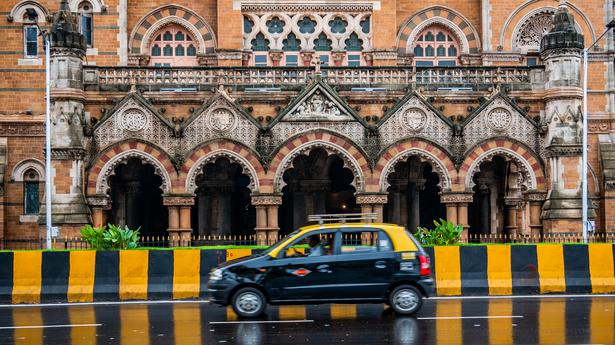
‘Rohzin’ by Rahman Abbas, translated by Sabika Abbas Naqvi, reviewed by Annie Zaidi: Mumbai, a mood
The Hindu
Closely observed lives in Mumbai and the fantastical elements of the Urdu imaginary interlace in this novel for which Rahman Abbas won the Sahitya Akademi in 2018
Myth, muse, mirage, a romance and a lament — the metropolis is a protean beast haunting the dreams of its writers. In Rahman Abbas’ Rohzin, Mumbai serves many of these functions, now a watery canvas floating the boat of first love and now a cesspool of emotional traumas.
The story begins in Mabadmorpho, a coastal village where Asrar has just finished high school. He decides to go to Mumbai to learn a trade. Living in ‘Jamat ki kholi’, along with other boys from the village, the teenager is introduced to the glitz, the stink and the contestations of identity that have defined Mumbai in recent decades. Seen through his eyes, the city comes alive with details such as a gold tooth with a yellowing one right next to it, a commode that looks like a bursting and blistering ulcer, a drain in Kamathipura and its sustenance of animal and insect life.
“Seen through Asrar’s eyes, the city comes alive with details such as a gold tooth with a yellowing one right next to it, a commode that looks like a bursting and blistering ulcer, a drain in Kamathipura and its sustenance of animal and insect life”
Despite its sensory shocks, Asrar is willing to be seduced by the city and is not disappointed. He finds work with a manufacturer of costume jewellery and embraces new experiences, though the sadness and confusion that had infused his life in the village continue to inflect his moods. That is, until he meets Hina, the daughter of a perfumer. The romance that unfolds is marked by sweetness and a lack of calculation typical of teenage love, but the novel is saved from the clichés of love-at-first-sight through other, less idealised sexual encounters and the quiet grief of the young men who live and work together. Feminine grief and desire are pencilled in rather than detailed, and ultimately subsumed or made serviceable within an overarching masculine fantasy.
The perfumer, Yusuf, has also been shaken from his moorings through an encounter with an Algerian woman, whose beauty and erudition lead him to reconsidering his faith and his marriage. He leaves his wife, whom he has treated less like a partner and more like a field to be “ploughed”, and enters a circle of Luciferians. Here, one set of rituals is exchanged for another, replete with candles and speeches, and sexual encounters are unencumbered by responsibility. The novel frequently segues into philosophical conversations about sex and strictures that may limit human experience, and the question of whether one can liberate oneself from civilisation. However, it stops short of building a serious debate about such questions and it is never clear whether Abbas portrays the ‘reptiles’ of the unconscious ironically or as a conscious commentary on cults that may emerge from grief, guilt or ennui.
The writer addresses upfront the role identity plays in triggering external and internal crises. The average Indian wears a multi-layered identity, constructed from historic and ongoing migrations. Asrar, for instance, has Zoroastrian heritage on one side, Konkani on the other, and is Muslim perhaps only as an accident of birth. Similarly, other characters are Gujarati Muslim or Arab, but connected to a pre-Islamic Egyptian or Algerian heritage. Linguistic identity complicates matters further. On the train, Asrar and his friends are initially dismissed as “bhaiyya” by a group of Gujarati passengers. In response, they immediately assert their Maharashtrian identity by speaking in Konkani, thus shutting up the Gujarati group. Later, Asrar notices burqas and bearded men at one station and wonders if the area is “ours”. However, this identity is complex too, since these people are identified as Qasai or Chilya, and not Konkani Muslims.
Mumba devi is another major character in the novel. Through history, dream and surrealist asides, Abbas weaves in legends about the goddess, myths surrounding the seven islands that make up Mumbai, and a foretold catastrophe. The novel draws on a modern literary tradition and the influence of Urdu writers like Naiyer Masud is apparent, with realism and surrealism colluding to create a strangeness that manifests as mourning dolphins, djinns who eat hearts, mysterious books that may turn the world on its head, and conversations between a tree and a monster.













